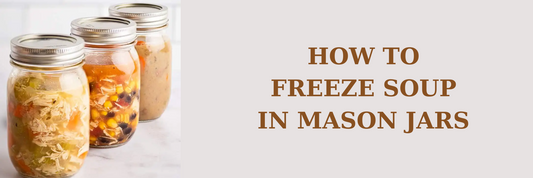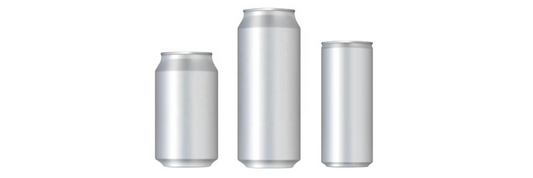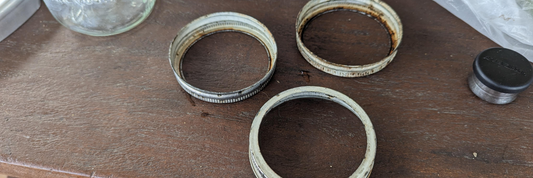It is estimated that Canadians discard 3 million plastic bottles each year. Not only can plastic bottles be used for decoration, but they can also be recycled into polyester! How does this happen? What specific actions can be taken to recycle used plastic bottles at your restaurant? Find out in the article below.
- How to Recycle Wooden Cutlery?
- 4 Things About Recycled Paper Straws that Coffee Shop Should Know
- Should Your Food Business Use Recycled Paper Napkins?
How Plastic Bottles Are Recycled into Polyester Garment?
Polyester is the most common fabric in the world, used in a wide variety of applications including clothing, bed sheets, pillows, furniture, and even industrial products such as ropes and tires. Polyester can be made from coal, petroleum, and ethylene, or it can be made from recycled plastic from various types of plastic, including used plastic bottles.
After being used, a plastic bottle goes through several different stages to become polyester. Here are the main steps:
- The journey begins with collecting used plastic bottles. These are then sorted by color and type of plastic. Commonly used plastic types are PET and PETE (symbol number 1), which are collected from households, businesses, and other facilities. That's reason why understand recycling symbols is important for business.
- Cleaning and flaking: The collected bottles are washed and sterilized to remove any contaminants like labels or leftover drinks. Then, they are crushed and shredded into small flakes.
- Melting and extrusion: The plastic flakes are melted down into a hot liquid polyester. This molten plastic is then forced through a machine with tiny holes, similar to a showerhead. This process creates long, continuous strands of thin polyester fibers.
- Conversion and baling: The long fibers are then cut into shorter lengths and sometimes treated to improve their properties. These short fibers are then baled into large packs for transportation.
- Carding and spinning: The baled fibers are fed into carding machines that brush and align the fibers in the same direction. This improves the strength and consistency of the final yarn. Finally, the aligned fibers are spu. on machines that pull and twist them into strong threads.
- Weaving or knitting: The recycled polyester yarn is then woven on looms or knitted into fabric, just like regular polyester. This fabric can be dyed various colors and used to manufacture all sorts of clothing items.
After going through the above steps, the plastic bottles become polyester fabric and are used for clothing, bed sheets, pillows, etc. The reuse of plastic bottles to make polyester has many positive impacts on the environment, especially when compared to virgin polyester.
Environment Impact of Polyester made from Plastic Bottle
Comparison with Virgin Polyester
When comparing polyester made from plastic bottles and virgin polyester, here are the basic differences:
Raw material source:
- Recycled polyester: Made from used plastic bottles (PET or PETE) and sometimes other plastic waste.
- Virgin polyester: Made from petroleum, a non-renewable fossil fuel.
Production process:
- Recycled polyester: Requires collecting, sorting, cleaning, melting, extruding, converting, and spinning recycled plastic. Less energy intensive than virgin polyester.
- Virgin polyester: Extracting crude oil, refining it into chemicals, and then going through a similar process of polymerization and spinning fibers. More energy intensive and has higher greenhouse gas emissions.
Textile properties:
- Recycled polyester: Quality can vary depending on the source and processing techniques. May have slightly lower fiber strength or consistency compared to virgin polyester in some cases.
- Virgin polyester: Generally consistent and high-performing with good strength and elasticity.
From the above, it can be seen that the fabric quality of the two types of polyester is quite similar. However, recycled polyester has less impact on the environment due to its origin, does not use non-renewable energy sources, can utilize waste plastic, and reduce the impact of plastic on the environment.
In addition, recycled polyester also has many positive effects on the environment, as explained below.
Benefits for the Environment
Here are the positive impacts of recycling plastic bottles into polyester:
- Reduced landfill waste: When we recycle plastic bottles, they don't end up in landfills, where they can take centuries to break down and potentially leak harmful chemicals into the environment.
- Smarter resource use: Recycling plastic cuts down on our need for virgin petroleum, a non-renewable resource used to make polyester. This helps us conserve precious resources for the future.
- Energy savings: Recycling plastic bottles into polyester uses less energy overall compared to making new polyester from scratch.
- Climate change fighter: Studies show that recycled polyester can have a major impact on reducing greenhouse gas emissions, up to 75% less compared to virgin polyester. That's a big win for our planet!
However, polyester made from plastic bottles also has some negative impacts on the environment.

Negatives impacts
Here are some of the negative impacts of recycled polyester:
- Microplastic release: While recycled polyester offers environmental benefits, concerns exist regarding microplastic shedding during garment washing. These tiny plastic fibers can enter waterways, potentially harming ecosystems.
- Chemical usage: The recycling process utilizes various chemicals for cleaning, melting, and treating the fibers. This raises concerns about potential environmental pollution if these chemicals are not properly managed.
- Recycling limitations: Not all plastic bottles are effectively recycled due to contamination or limitations in current sorting technologies. This can hinder the overall environmental benefit of using recycled materials.
- Production considerations: The initial processing of recycled plastic, particularly in some regions with lax environmental regulations, might lead to air or water pollution. It's crucial to ensure responsible production practices throughout the recycling chain.
Overall, recycled polyester is a more sustainable option than virgin polyester. However, it is important to be aware of the potential negative impacts of recycled polyester and to take steps to mitigate these impacts.
Plastic Bottle Recycle Guide
To turn plastic bottles into polyester, here are some things your store and business need to pay attention to in order to sort and recycle plastic bottles properly.
What can be recycled?
- Generally, most clear and colored plastic bottles used for beverages (water, soda, juice) are recyclable.
- Check the recycling symbol on the bottom of the bottle. Look for PET (PETE) or numbers 1 or 2 within the recycling symbol.
- Some programs might also accept detergent or cleaning product bottles. Check with your local recycling guidelines for specifics.
How to prepare your plastic bottles for recycling:
- Empty the bottles: Remove any leftover liquid or food residue. A quick rinse with water is helpful, but don't worry about excessive cleaning.
- Cap it off: Screw the caps back on tightly. Some programs might have separate sorting for caps, so check your local guidelines.
- Label removal (optional): In some cases, labels might need to be removed. Check with your local program, but generally, it's okay to leave them on.
- Crush or not to crush (optional): Crushing bottles can save space in your recycling bin, but it's not always necessary. Check your local program's preference.
What NOT to recycle?
- Plastic bags, wraps, or films typically aren't accepted in curbside recycling. Check for designated drop-off locations for these items.
- Oil containers, chemical containers, or heavily contaminated bottles should not be recycled with regular plastics.
Local Recycling Information:
- The most important step is to check with your local recycling program for specific guidelines. They might have variations in accepted materials, sorting requirements, or preparation instructions.
- Many cities or waste management companies have websites or phone numbers where you can find this information.
In conclusion, recycling plastic into polyester is a useful way to reduce plastic waste, give new life to plastic bottles, and minimize environmental impact. Each store and business needs to pay attention to the sorting and processing of plastic bottles in order to maximize the recyclability of used plastic bottles.









